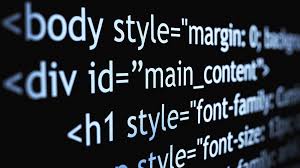How Coding Should be Taught to Kids

Parents and educators across the country understand the importance of teaching kids how to code. Not only can it help them learn valuable skills that they can use into their technology-driver future, but it also helps them learn to approach problems differently. But determining the best method for teaching a child to code isn’t always obvious.
In most cases, people agree that a traditional textbook approach is insufficient for subjects like coding. While the idiosyncrasies of the language can be introduced that way, it is difficult to assimilate the information until it is in use fully. But sticking children in front of a blank screen and having them write line after line, though functional, isn’t very inspiring or even interesting.
If you want to capture the interest of young students while giving them access to a valuable skill set, then turning to games may be the ideal method.
Games and Education
Educational games are nothing new. Many of today’s parents can remember the excitement (and, at times, frustration) surrounding The Oregon Trail when they were in school, and that was designed as an educational experience.
Today’s educational games have much more capacity than was available to our pioneer families fording the river, but the general premise behind educational gaming remains the same; video games provide visual feedback regarding our choices. Coding games help children learn how to structure their input and provides almost instantaneous feedback regarding their choices. This allows them to correct mistakes quickly and understand ideas more thoroughly, all while maintaining a level of engagement that might otherwise be missing.
Games and Parents
When kids begin to learn to code, it is very similar to learning a foreign language. And, if a parent isn’t familiar with the other language, it can leave many at a loss when it comes to helping their child learn. Not every parent has the opportunity to learn to code for the benefit of their child’s education, and those that do possess the skills may have trouble translating them into something that is easily understood by an elementary school student.
However, using age-appropriate games to help children learn also provide parents with a mechanism for teaching themselves, or for connecting with their kids at a level they can understand. In this regarding, parent involvement can be encouraged without the intimidation some parents may currently feel.
Fun and Learning
Many people are under the misconception that learning has to be serious to be effective. However, research actually suggests that having fun doesn’t just help with learning, but may also be more effective for authentic learning as well as long-term memory. Often, fun, exploration, and discovery are fairly compatible in the classroom. Compare that to the feelings associated with conformity and formality associated with sitting at desks and staring at chalkboards, and it might not be a surprise why a game-based approach may be more effective.
Instead of trying to force information in the minds of children, let’s explore everything games have to offer when used properly. Not only will kids learn new skills, but they’ll enjoy themselves while doing it. And, ultimately, that might help keep curiosity alive as they progress through school, into college, and into the working world.






